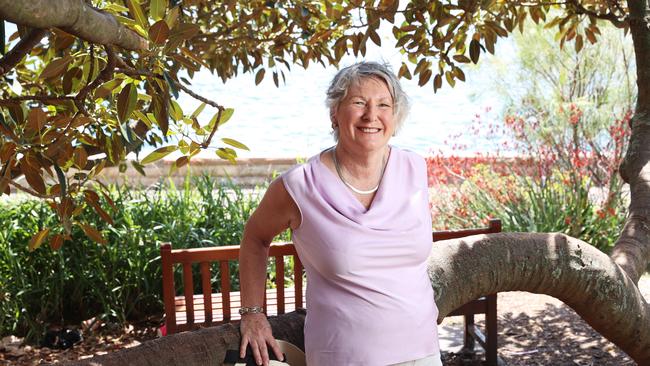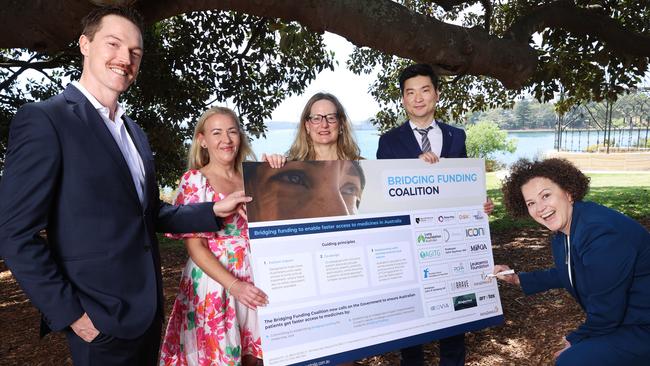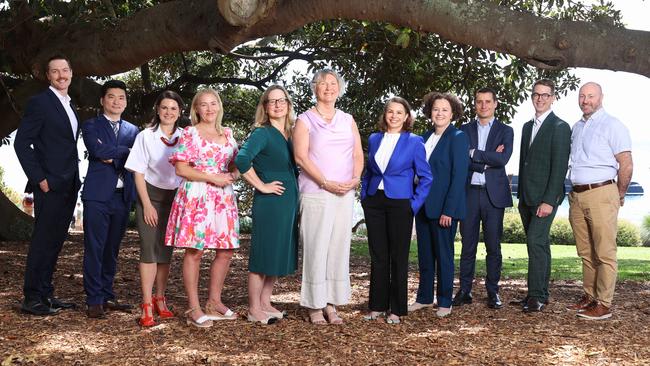Drug subsidy bridging fund required for cancer patients, experts argue
Jacinta Frawley, a psychotherapist from Sutherland in Sydney, had a stage three ovarian cancer diagnosis that was unresponsive to treatment – until a new treatment handed her a new lease on life.

On her 59th birthday, Jacinta Frawley was diagnosed with ovarian cancer, yet still holding to her manners she made it her mission to get to know her new oncologist, asking him about his family.
“He said he had children, and I said our son was overseas,” Ms Frawley, now 64, recalls.
“I said he would be home for Christmas, and I’ll never forget this, the oncologist said ‘you have cancer, Christmas is too far away. He has to come now’.
“I had the worst response to chemo possible,” she says
Ms Frawley, a psychotherapist from Sutherland in Sydney, had a stage three diagnosis that was unresponsive to treatment – until a new treatment developed overseas handed her a new lease on life.
It was ideal for targeting Ms Frawley’s ovarian tumour, the only trouble was it costed thousands of dollars to access in Australia. “There’s an eight-week window of opportunity for that medication,” she says. “So there suddenly was absolute urgency.
“I started that medication, and that day I left the hospital.”
Ms Frawley is one of the many patients advocating for an interim government fund to provide subsidised medicines to patients in need, avoiding the lengthy waits that usually preface the government’s decision to subsidise new drugs such as hers.
Pharmaceutical industry body Medicines Australia currently estimates the funding gap between a drug being approved by the Therapeutic Goods Administration and subsidised by the Pharmaceutical Benefits Scheme at 442 days.
It has led more than a dozen oncology experts and patient groups, convened by AstraZeneca, to throw their weight behind a federal fund to bankroll access to those without alternative treatments in that 14-month limbo.
Even though Ms Frawley was able to get her treatment through compassionate access, a system where pharmaceutical companies provide a drug to patients in need, she says the insecurity of conditional access measures was still discriminatory.
“I was very insecure,” she says. “I had this idea it could be taken away from me at any minute and that made me very tense.
“You’re dependent on a pharmaceutical company, and not to be harsh, but they’re doing it for the money. You feel like you’re an object of charity.”

Peter MacCallum Cancer Centre haematology head John Seymour argues it will not present a noticeable strain on the health budget to give interim funding, seeing as the majority of eligible treatments will be subsidised.
“Under the current system more than 90 per cent of cancer drugs that receive TGA approval … ultimately receive reimbursement,” Professor Seymour says.
“But people are dying from these aggressive diseases unnecessarily while the approval processes work through.”
Bridging funding has been suggested as a possible means of reforming the PBS for years, having been broached during the recent Health Technology Assessment review. However, Medicines Australia called for “careful consideration” in how bridging funding was handled alongside other substantial changes recommended in the HTA review.
“A bridging fund was one of 50 recommendations made by a recent review into the systems and processes that sit behind the PBS,” chief executive Liz de Somer says.
“Careful consideration will need to be given to the design of a bridging fund to ensure it is sustainable and accessible to those most in need.
“A bridging fund alone will not fix the delays that Australians are experiencing in accessing new medicines through the PBS, and will need to be implemented as part of the full package of reforms.”
Private Cancer Physicians of Australia chief Christopher Steer says a bridging fund will provide surety to patients.
“It is a global environment and you don’t want any barriers to access for our patients to these innovative medicines,” he says.
“The bridging fund will be vital to deal with these extra delays that we are facing.”

Lung Foundation head Mark Brooke says a bridging fund will provide equity to patients.
“As a lung cancer patient you don’t have the luxury of time to wait for new medicines to be approved. From the moment you are diagnosed, you are on a ticking clock,” he says.
“Lung cancer has the bad rap of being related with smoking … we continue to hear people having to go to charitable organisations or sell the family home, or dig into their superannuation, when a treatment is available.
“The bridging funding is not designed in any way shape or form to replace the usual process of the PBAC … but on those occasions where patients do not have the luxury of waiting 442 days, there needs to be a mechanism.”
Health Minister Mark Butler was contacted for comment.
Opposition health spokesperson Anne Ruston has not committed to a bridging fund under a potential future Coalition government.
“Labor has taken a go-slow approach to HTA reform, and now they are delaying access to new medicines through an arbitrary cap on the PBS process,” Ms Ruston says.
“The government must stop using the PBS as a cost-saving mechanism.”


To join the conversation, please log in. Don't have an account? Register
Join the conversation, you are commenting as Logout